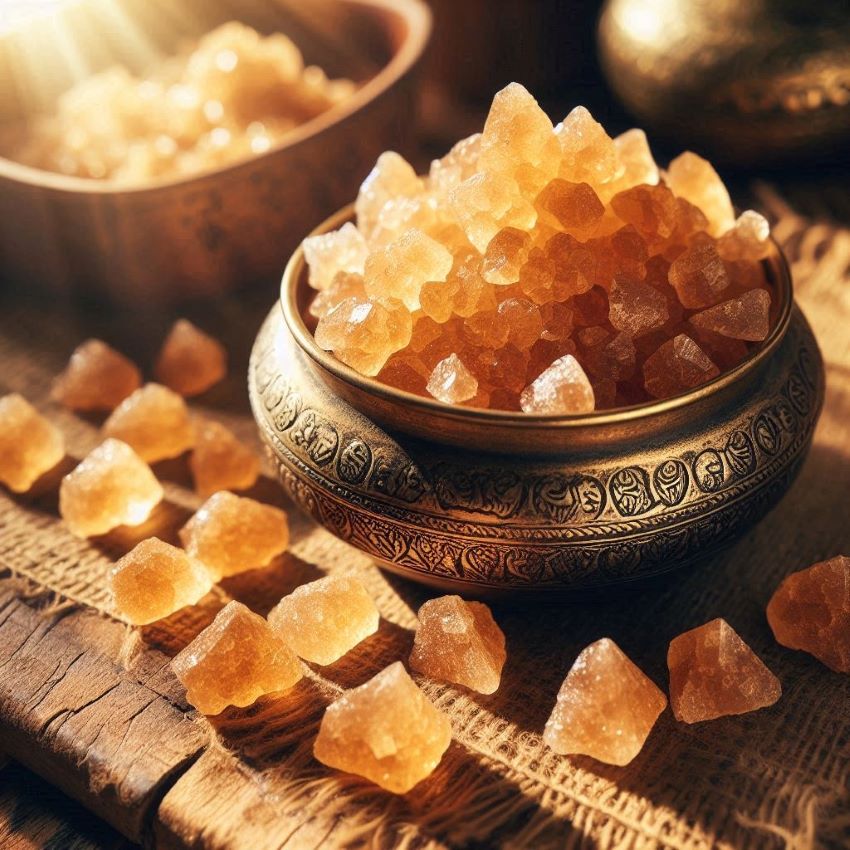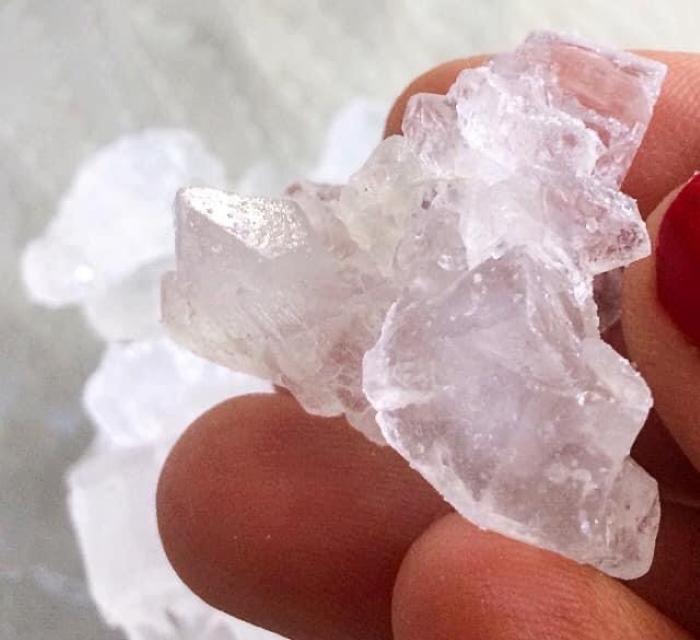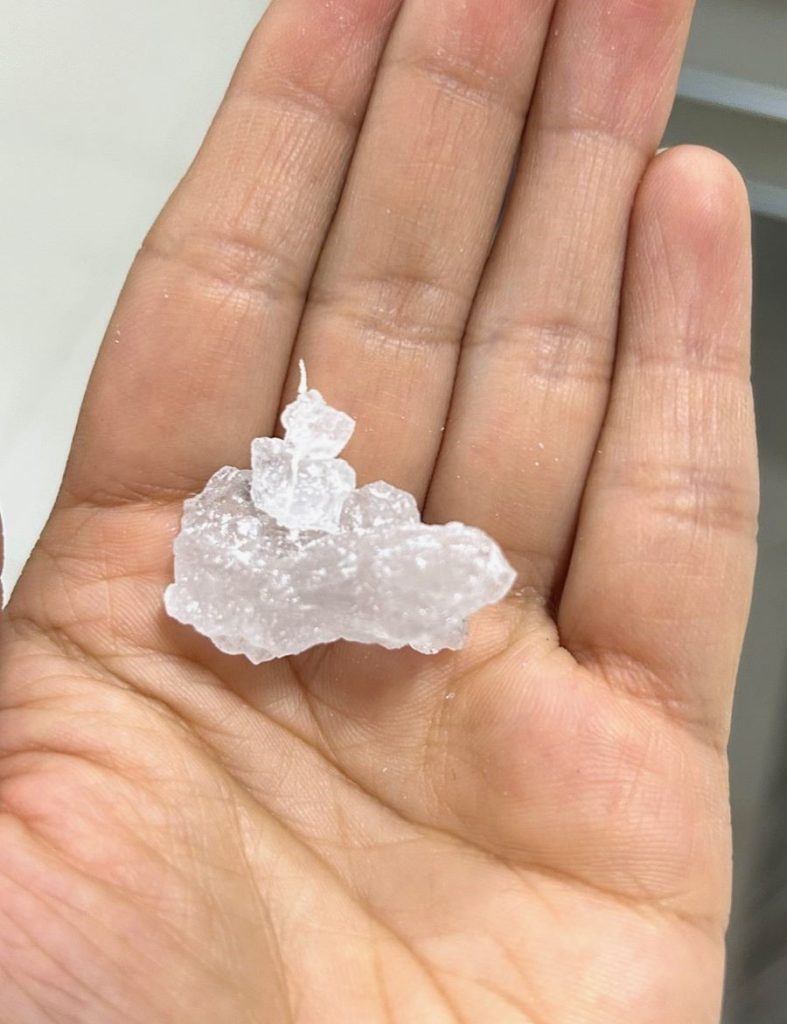
If you have ever been to an Indian restaurant, it is common to spot a bowl, at the entrance of a restaurant containing fennel seeds and rock candy squares. This practice stems from the age-old ayurvedic wisdom that mishri is a mouth freshener, digestive, mood uplifter and energy booster.
Rock sugar also known as Khand or Mishri is unrefined sugar made from the solution of sugarcane and the sap of palm tree. It is made by evaporating the sugarcane sap. The nectar and sugarcane tree is almost colourless when it is in its fresh form. As it ages for a few hours it develops a creamish colour. To make white mishri, it is processed further by boiling the creamy mishri with water and then cooling it down in dark spaces. The unrefined rock candy is similar to the refined sugar in colour but tastes so much better in flavour. It is less sweet than refined sugar making it an ideal, mild sweetener for many drinks and dishes.

How to differentiate between Real Mishri and Artificial Mishri
There are three types of mishri available in the market. They are:
* Dhage wali mishri: It is simply mishri crystallised on a thread. It is the authentic, traditional form of mishri.
* Small machine-made crystals of mishri
* Large crystallised lumps without any thread
For real Mishri, go for Dhage (Thread) wali Mishri as it is the most traditional and authentic mishri. The use of thread is a common practice to support the process of crystallization.

Read below for some amazing health benefits of Mishri:-
Mishri is loaded with vitamins, minerals and amino acids and is often used for medicinal purpose. It is used in Ayurveda for centuries for strengthening weak immune system.
- Cough suppressant: Due to its medicinal and therapeutic value, mishri, in Ayurveda, helps easing cough and cold symptoms. It is also famous among Indian classical singers to prevent their vocal cords from being dry. A powder of mishri and black pepper with lukewarm water helps in alleviating cough and also sweeps out excess mucus. Pop a small piece of mishri instead of sugar and artificial flavour loaded cough lozenges as a natural cough suppressant.
- Aids Digestion: It also helps in giving relief from acidity, gas, nausea and indigestion. Having mishri with fennel seeds post meal is not just an amazing mouth freshener but it also helps in digestion.
- Increases Haemoglobin: According to a famous nutritionist, Rujuta Diwekar, mishri is useful in anaemia, weakness, pale skin, dizziness and fatigue. It helps to support good blood flow in the body.
- Boosts Energy: Mishri is an instant source of energy, that refreshes your dull mood and boosts your energy especially during post-menopausal mood swings. Mishri improves memory and eases mental fatigue.
- Mood Swings: It helps in dealing with mood swings, depression especially in new mothers as a result of post-partum depression.
- Treats Nausea: Mishri is an elixir when it comes to relieving nausea and vomiting sensations. By keeping these tiny sweet in your mouth, you can soothe the unease that may have got triggered by acidity or an infection.
Takeaway
While natural sweeteners like jaggery and honey also have amazing health benefits, mishri is often overlooked and forgotten because of its pale countenance. And for people who worry about ‘sugar’, it’s the processed and hidden sugars in the processed foods you need to be wary of. Natural sugar works wonders and should be a part of your healthy, wholesome diet but of course in moderation. Cheers to good health! 🙂










[…] can use natural sweetener of your choice. Mishri (rock sugar) or coconut sugar works well […]
[…] families even swap honey for mishri (rock sugar), pairing it with pepper to soothe cough […]